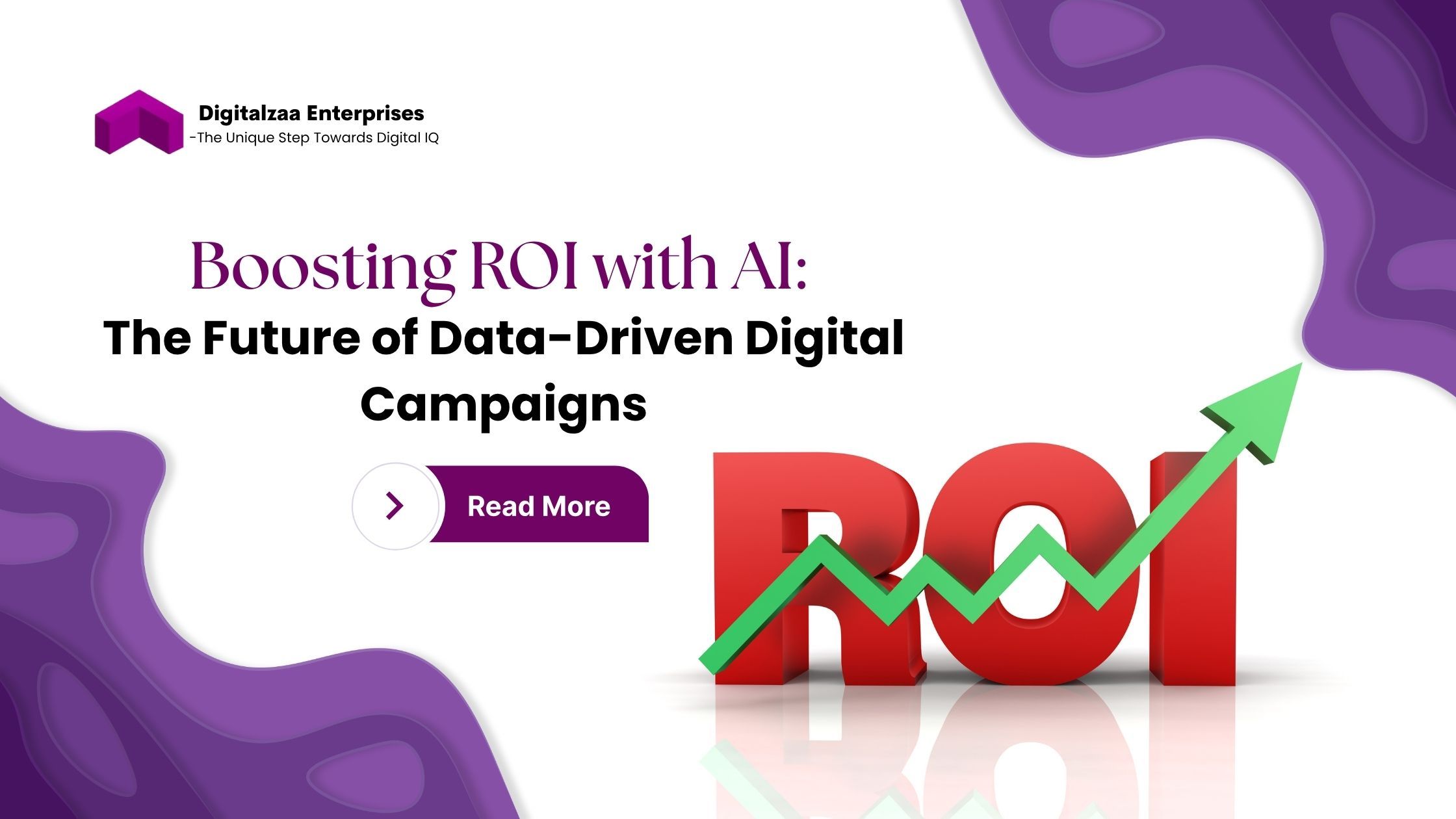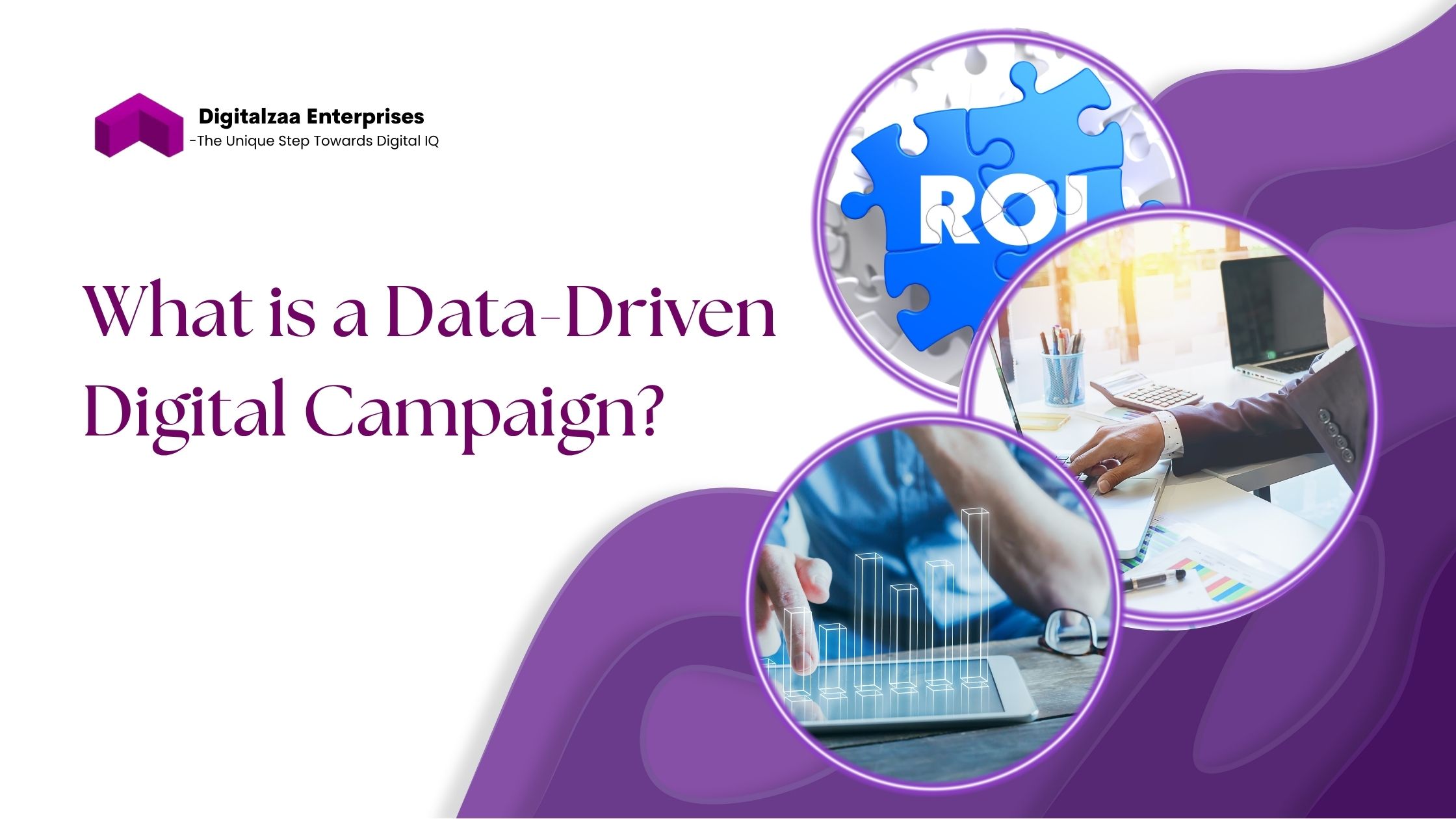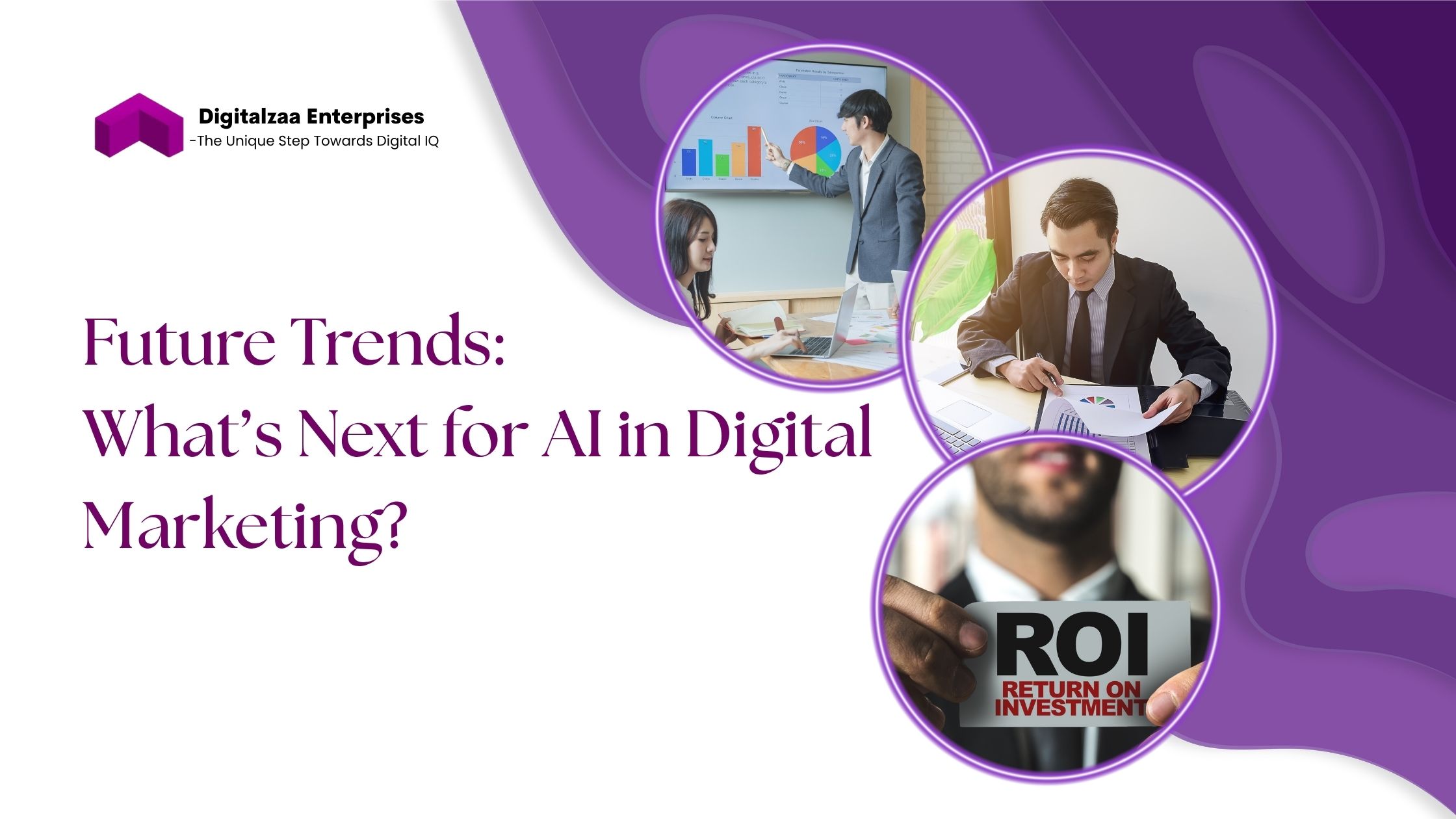Boosting ROI with AI: The Future of Data-Driven Digital Campaigns

In the era of digital transformation, marketing has undergone a seismic shift. Traditional campaigns rooted in static data and generic messaging are rapidly being replaced by highly personalized, dynamic, and intelligent marketing strategies. At the heart of this evolution lies artificial intelligence (AI), which is not just a trend but a fundamental enabler of growth and efficiency. Today, organizations striving to maximize return on investment (ROI) are increasingly turning to AI-powered, data-driven digital campaigns.
But how exactly does AI enhance digital marketing ROI? What makes data-driven campaigns the future of online marketing? And what actionable steps can businesses take to unlock these benefits? In this comprehensive blog, we’ll explore the transformative power of AI in digital campaigns and how it’s shaping the future of marketing.
The Age of Intelligent Marketing
Modern consumers are more connected, informed, and demanding than ever. They expect brands to understand their preferences, anticipate their needs, and deliver meaningful interactions at every touchpoint. To meet these expectations, marketers must go beyond guesswork and leverage real-time insights — something only AI can effectively facilitate at scale.
AI empowers marketers to:
- Analyze vast amounts of data instantly
- Automate repetitive and time-consuming tasks
- Predict user behavior and outcomes
- Optimize content and campaign delivery in real-time
These capabilities are crucial in creating marketing strategies that are not only data-driven but also adaptive, personalized, and ROI-focused.
What is a Data-Driven Digital Campaign?

A data-driven digital campaign leverages consumer and performance data to design, target, and optimize marketing efforts. Instead of relying on intuition, marketers base their decisions on hard metrics and behavioral patterns. These campaigns typically incorporate:
- Demographic and psychographic data
- Historical campaign performance
- Real-time analytics and feedback
- Conversion and engagement metrics
With AI in the mix, these campaigns become more accurate, scalable, and capable of delivering superior results.
AI’s Role in Enhancing Digital Campaign ROI
Let’s break down the specific ways in which AI contributes to boosting ROI in digital marketing:
1. Predictive Analytics for Smarter Targeting
AI-driven predictive analytics models can forecast consumer behavior based on historical data. This means businesses can:
- Identify high-converting customer segments
- Allocate budgets to the most profitable audiences
- Predict lifetime customer value (CLV)
By focusing efforts where they are most likely to succeed, companies reduce ad waste and increase campaign effectiveness.
2. Hyper-Personalization at Scale
Consumers no longer respond to one-size-fits-all messages. AI helps create hyper-personalized experiences by:
- Analyzing user behavior in real time
- Segmenting audiences with high granularity
- Tailoring messages, offers, and creatives to individual users
According to a study by McKinsey, personalization can reduce acquisition costs by up to 50% and increase marketing ROI by 5–8 times.
3. Dynamic Content Optimization
Content is king — but only when it’s relevant. AI tools like natural language processing (NLP) and computer vision enable:
- Real-time content testing and optimization
- Automatic headline and CTA generation
- Adaptation of visual assets for different audiences
This ensures that each consumer sees the version of the content most likely to convert, significantly improving ROI.
4. AI-Powered Ad Bidding and Budget Allocation
AI automates the media buying process by using algorithms that determine:
- The best time to display an ad
- The most relevant platform or channel
- The optimal bid to win impressions while minimizing spend
This real-time decision-making helps marketers extract maximum value from every dollar spent.
5. Chatbots and Conversational AI for Higher Engagement
Customer support and lead engagement play a crucial role in conversions. AI-powered chatbots:
- Provide 24/7 customer support
- Answer FAQs instantly
- Capture leads through intelligent conversation
They increase engagement and reduce bounce rates, contributing to better lead nurturing and higher conversion rates.
6. Intelligent Campaign Performance Analysis
AI not only drives campaigns but also improves them by:
- Automatically identifying which creatives, keywords, or audiences perform best
- Suggesting actionable changes in real time
- Providing comprehensive dashboards with predictive recommendations
This closes the loop between planning, execution, and optimization — a cornerstone for ROI-driven marketing.
Key Technologies Powering AI-Driven Marketing
Understanding the underlying technologies can help businesses better utilize AI. Some essential tools include:
- Machine Learning (ML): Learns from data to make predictions and decisions.
- Natural Language Processing (NLP): Enables machines to understand and generate human language, used in chatbots, content analysis, and more.
- Computer Vision: Interprets images and videos, useful for content tagging and personalization.
- Robotic Process Automation (RPA): Automates repetitive marketing tasks such as email segmentation or campaign scheduling.
- Customer Data Platforms (CDP): Aggregate customer data from multiple sources to create unified profiles for personalized targeting.
Steps to Implement AI-Driven Digital Campaigns
Step 1: Define Clear Objectives
Before implementing AI, identify specific campaign goals:
- Increase conversion rate
- Lower cost per acquisition (CPA)
- Enhance customer retention
- Improve email open rates
Step 2: Audit Your Data Infrastructure
Ensure that your CRM, analytics, and marketing platforms can:
- Capture and store relevant customer data
- Integrate with AI tools
- Provide actionable insights
Step 3: Choose the Right AI Tools
Opt for platforms aligned with your goals. Some popular choices include:
- Google Marketing Platform
- Salesforce Einstein
- Adobe Sensei
- HubSpot AI Tools
- ChatGPT API for copy generation and content planning
Step 4: Start Small and Scale
Begin with a pilot project — like AI-powered email marketing — and evaluate the results. Use learnings to expand into paid ads, content personalization, and lead scoring.
Step 5: Train Teams and Foster Collaboration
AI works best when your team understands how to use it. Invest in training programs and promote cross-functional collaboration between marketing, data science, and IT departments.
Challenges and How to Overcome Them
While AI presents numerous advantages, implementing it isn't without hurdles:
Data Quality and Privacy
- Challenge: Inaccurate or incomplete data can derail AI performance.
- Solution: Regularly audit data sources and comply with privacy regulations like GDPR and CCPA.
Integration with Existing Systems
- Challenge: Legacy systems may not support AI tools.
- Solution: Use middleware and cloud platforms for smoother integration.
Lack of Expertise
- Challenge: Shortage of skilled professionals can stall implementation.
- Solution: Leverage AI-as-a-service (AIaaS) providers or partner with AI consulting firms.
Overdependence on Automation
- Challenge: Blind reliance can lead to tone-deaf campaigns.
- Solution: Combine AI with human oversight to maintain creativity and empathy.
Future Trends: What’s Next for AI in Digital Marketing?

The next wave of AI innovation in marketing promises even more breakthroughs:
- Autonomous Campaigns: Fully automated campaigns that self-create, self-optimize, and self-report — minimizing human intervention while maximizing ROI.
- AI-Generated Content at Scale: From videos and blogs to product descriptions and ads, generative AI tools like ChatGPT, DALL·E, and Sora are making scalable content production more efficient.
- AI-Powered Voice and Visual Search: As voice assistants and image-based queries grow, AI will help brands rank higher by optimizing content for alternative search formats.
- Ethical and Transparent AI: Customers increasingly value transparency. AI tools will incorporate explainability features and align with ethical standards for responsible marketing.
Conclusion: AI Is the ROI Multiplier You Need
The digital marketing landscape is evolving, and AI is at the forefront of this transformation. By intelligently harnessing data, automating complex processes, and delivering personalized experiences at scale, AI-driven campaigns are redefining what it means to succeed in a crowded market.
Organizations that embrace AI are not only increasing their ROI but also building more responsive, agile, and customer-centric brands. Now is the time to invest in AI tools, rethink your data strategy, and future-proof your marketing efforts.
Whether you're a startup or an enterprise, the question is no longer if AI will shape your campaigns — but how well you're prepared to use it.


